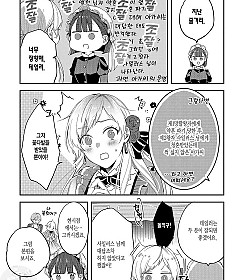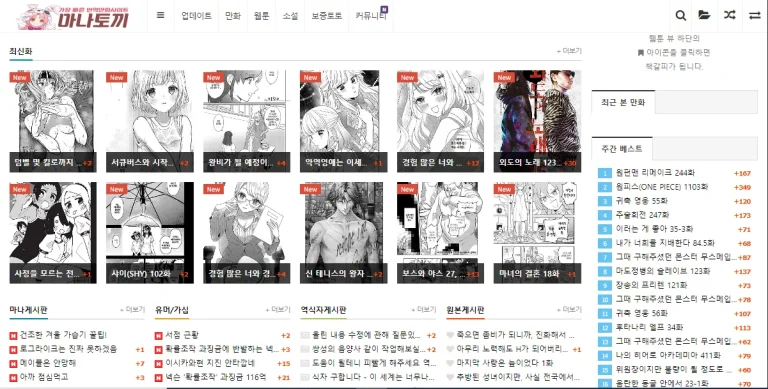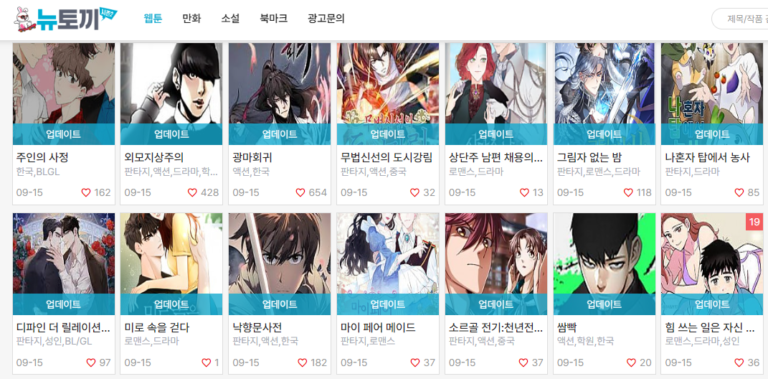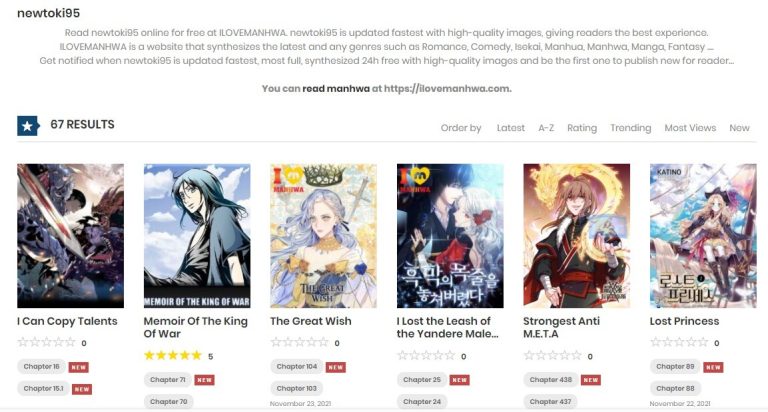Newtoki115 bl and gl: An In-Depth Analysis of Newtoki115’s BL and GL Universe

In the vast digital expanse where literature thrives, Newtoki115 has carved out a unique niche, captivating readers with its diverse array of boy-love (BL) and girl-love (GL) narratives. These unconventional genres, once considered niche, have now become a cultural phenomenon, transcending boundaries and igniting passionate discourse among avid readers worldwide. As these stories continue to gain traction, a multitude of perspectives emerge, each offering a unique lens through which to appreciate the nuances of these captivating tales.
At the heart of this discourse lies a fundamental question: What is it about Newtoki115’s BL and GL offerings that resonates so profoundly with its dedicated readership? Is it the exploration of societal norms, the celebration of diversity, or perhaps the authors’ ability to weave compelling narratives that transcend gender boundaries? As readers delve deeper into these stories, they unravel the intricate threads that shape their preferences, revealing a tapestry woven from personal experiences, cultural influences, and individual inclinations.
The Allure of Newtoki115’s BL Universe
For many enthusiasts, Newtoki115’s BL offerings hold a particular allure, granting them a glimpse into the intricate dynamics of same-sex relationships between male characters. These narratives often challenge traditional gender roles and power dynamics, presenting relationships built upon mutual understanding and emotional depth. Readers revel in the exploration of complex emotions, societal barriers, and the universal pursuit of love and acceptance – elements that resonate profoundly with their personal experiences and inclinations.
One reader, who goes by the username “LunaAngel-Eclipse,” shared their perspective: “For some reason, in my personal experience, josei BL writers often put more emphasis into elements I like – action, world-building, horror, and grand-scale plots, to name a few – than josei BG writers. Thus, I tend to like BL more.”
This sentiment echoes a recurring theme among BL enthusiasts: the appeal often extends beyond the mere portrayal of same-sex relationships. Many readers find themselves captivated by the rich world-building, intricate plots, and engaging character development that often accompany these stories. The absence of familiar romantic tropes allows authors to delve into uncharted territories, crafting narratives that prioritize personal growth, self-discovery, and the celebration of individuality.
As one reader, “Owl1412,” aptly puts it, “For BL and GL, they also have their annoying tropes, but there are a few where the plot and writing have really impressed me. I think it’s because BG is more mainstream that there’s a lot more trashy ones you have to sift through to find the good ones.”
The Intriguing World of Newtoki115’s GL Narratives
On the other hand, Newtoki115’s GL offerings have garnered a dedicated following, resonating with readers who seek narratives that explore the intricacies of same-sex relationships between female characters. These stories often present a unique perspective on love, friendship, and the complexities of navigating societal expectations.
For some readers, like “Sabruness,” a self-proclaimed “Cultured Yuri Connoisseur,” the appeal lies in the wholesome and empowering portrayal of female relationships, offering a refreshing departure from traditional gender stereotypes. “I read both BG and GL. Wouldn’t touch BL with a ten-foot pole,” they share, highlighting their preference for GL narratives.
However, the allure of Newtoki115’s GL content extends beyond the exploration of same-sex relationships. As “Lissi” eloquently articulates, “It’s just… a general good feeling, I guess? As for GL, I’m not sure. I’ve never read GL before, and don’t really want to try. I have heard people say it’s really wholesome though, less abusive than BL can be sometimes and more friendship-like (?).”
This sentiment echoes the notion that GL narratives often offer a unique perspective on companionship, camaraderie, and the celebration of platonic bonds, resonating with readers seeking narratives that transcend traditional romantic tropes.
Embracing Diversity: The Inclusive Cohort
Amidst the diverse array of BL and GL content on Newtoki115, there exists a cohort of readers who embrace both genres with equal fervor. These individuals, like “YoriMei,” find themselves drawn to compelling stories regardless of the gender dynamics at play. As they eloquently state, “I read it all no matter the gender/pairing because I’m strictly in the camp of ‘if it’s good, I’ll read it.'”
This sentiment resonates with readers who prioritize the quality of storytelling, character development, and emotional resonance above all else. For them, the gender of the characters takes a backseat to the depth of the narrative, the richness of the world-building, and the ability of the story to captivate and inspire.
One reader, “Vi2,” exemplifies this perspective: “I don’t have a preference for the gender because I don’t care much about the romance in the first place, but I read a lot of Chinese BL these days because (not sure why) there are a lot of translations of novels that have the kind of premise, plot, characters, and so on that I like.”
This cohort of readers seeks narratives that challenge societal norms while simultaneously celebrating the universal experiences that bind us all together. They revel in the depth of storytelling, the richness of characters, and the emotional resonance that transcends the boundaries of gender and sexuality.
The Quest for Quality: Beyond Gender Dynamics
It is worth noting that preferences for Newtoki115’s BL and GL content are not solely driven by the portrayal of same-sex relationships. For many readers, the quality of the storytelling itself is paramount, regardless of the gender dynamics at play. Well-crafted tales that evoke powerful emotions and resonate on a profound level hold the power to captivate and inspire, transcending the boundaries of genre and preference.
As “Juju48” aptly states, “Honestly, not much. Two people fall in love. Experience hardships and pull together instead of apart (unless it’s a BE). Some books are good, some aren’t, no matter the genre.”
This sentiment resonates with readers who seek narratives that prioritize the universal human experiences of love, loss, and the resilience of the human spirit – elements that transcend the confines of gender and sexuality.
Moreover, readers like “Nimroth” highlight the potential for same-sex pairings to avoid perpetuating unequal power dynamics often present in traditional heteronormative narratives. “However, same-sex pairings in fiction do potentially have it easier to avoid an unequal power dynamic between the characters, at least if you ignore the fact that there are plenty of writers that still make one of them submissive to the other,” they posit.
This perspective sheds light on the nuanced ways in which BL and GL narratives can challenge societal constructs and offer fresh perspectives on relationships built on mutual respect and equality.
The Intersection of Relatability and Escapism
While some readers find solace in the familiar tropes of BG romances, others revel in the exploration of societal norms and the celebration of diversity found in BL and GL narratives. This dichotomy is beautifully encapsulated by “inactive_rose,” who poses a thought-provoking inquiry: “I, myself, have yet to read anything but BG. But, I can’t help wondering why some people be like ‘I don’t read anything but BL (or GL/BG)’ or the opposite who stays away from anything that has those tags. For me, I don’t really view the gender of a couple as anything other than that’s their gender. So, I would like to ask, what makes BL or GL more/less appealing than BG? What else changes with the story other than the gender?”
This question strikes at the heart of the discourse, inviting readers to delve into the intricate tapestry of personal experiences, cultural influences, and emotional resonance that shape their preferences.
For some, like “rhianirory,” the appeal of BL narratives lies in the portrayal of strong, intelligent protagonists who maintain their agency and individuality throughout the narrative. As they share, “I will drop any novel when the MC suddenly becomes an idiot or helpless child as soon as the ML enters the picture, so I don’t read many female MC romance. There are a few more BL where the MC is smart and equal partners to the ML, so I read more of those.”
This perspective highlights the desire for narratives that challenge traditional gender stereotypes and present well-rounded, multidimensional characters who defy simplistic tropes and clichés.





